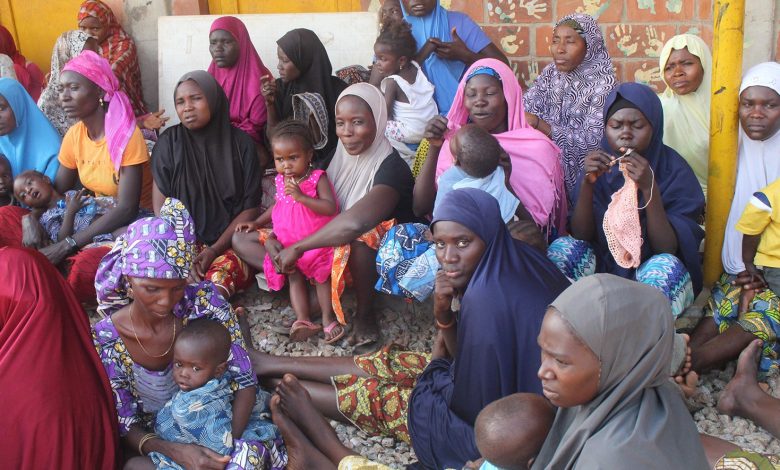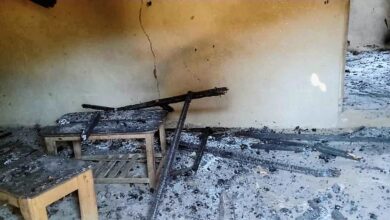Durumi Camp: Old IDPs Want To Return Home But New Ones Keep Coming

Despite having one of the highest concentrations of IDPs in Abuja, the Durumi camp has not stopped receiving new members.
While some move in from other camps in the city, others are newly displaced Nigerians from the communities targeted by insurgents.
“Sometimes, people join once in a month or two, and at other times in a week we can have 10 to 15 people coming. Sometimes, we can even go four months without seeing new arrivals,” explained Umar Gola, the spokesperson for the camp.
He said there had been instances where people returned to their home communities in Borno and other states only to come back to the camp and squat with those who had shelter.
He said they were forced to return because of the harsh conditions of living characterised by the lack of potable water, food and repeated attacks from terror groups.
“It is difficult to run a business. You can’t go out and hawk anything. Even if you have something to sell, there is nobody to buy and things are expensive.
“In Gwoza now, as a provision seller, you go to Adamawa to restock and have to spend days on the road. The security personnel are not helping matters because they tax everyone, even the drivers,” he said.
“People here are not thinking about going back to their communities because the areas are not conducive.
“Out of 100 persons, 80 to 85 depend on farming. In some communities in Borno and Adamawa, you can’t move three kilometres out of the village, you won’t come back. It is not safe.”
We would have been extinct if not for NGOs
Abuja attracts IDPs because it is presumed to be a safe haven since it is the seat of power and security agencies. But after arriving in the city, many become disappointed as their basic needs are not met by the government.
“If not for individuals and NGOs, we would have been extinct,” Idris Ibrahim Halidu, the Camp Coordinator, said.
He urged the government through agencies such as the Bank of Agriculture and Bank of Industry to empower young IDPs to begin farming or set up businesses
If the youth who are full of energy are not engaged, it not only endangers them but makes them potentially dangerous to the society, he said.
“To that extent, the IDPs phenomenon may turn out to be against the country in the future if proper care is not taken,” he stressed.
“As a 67-year-old, I can be tolerant of the inhumanity of the society, but the young ones who may not have similar privileges and level of tolerance… it is a danger looming large in the society. They see the other kids go to school while they stay idle,” he said.
Gola said the IDPs’ paramount desire was to be relocated to a secure environment, preferably in neighbouring Nasarawa State, where they could have access to farmland.
“They should relocate us, give us where to live, security, school for our children, farmlands, and create access roads to our various places. That’s the only thing we need from the Federal Government,” he said.
“We don’t even need them; they should just give us security. That is the most important thing we need now.
“There is nowhere to farm here. And considering the distance from where you can farm to this place, if you have the money for transportation, you already have enough to start a business.”
Support Our Journalism
There are millions of ordinary people affected by conflict in Africa whose stories are missing in the mainstream media. HumAngle is determined to tell those challenging and under-reported stories, hoping that the people impacted by these conflicts will find the safety and security they deserve.
To ensure that we continue to provide public service coverage, we have a small favour to ask you. We want you to be part of our journalistic endeavour by contributing a token to us.
Your donation will further promote a robust, free, and independent media.
Donate Here




